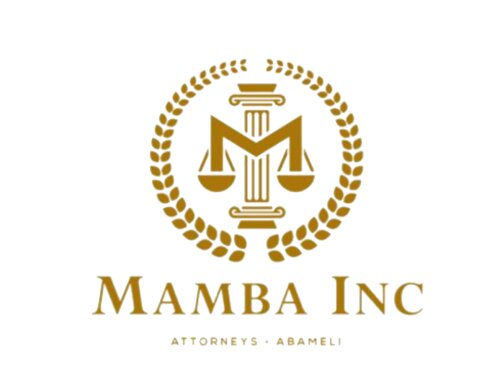Best Juvenile Law Lawyers in Centurion
Share your needs with us, get contacted by law firms.
Free. Takes 2 min.
List of the best lawyers in Centurion, South Africa
About Juvenile Law in Centurion, South Africa
Juvenile Law is a specialized area of law that focuses on children who are in conflict with the law or in need of care and protection. In Centurion, South Africa, Juvenile Law is governed by the Children's Act, 2005 and the Child Justice Act, 2008. These laws ensure that children under the age of 18 are treated differently from adults when involved in legal matters. The main goal is to protect the rights of children, promote their well-being and rehabilitation, and provide an environment that prevents further offending. Courts and legal practitioners in Centurion deal with juvenile cases in a manner that prioritizes the child's best interests.
Why You May Need a Lawyer
Legal matters involving children can be complex and emotional. You may need a lawyer specializing in Juvenile Law in Centurion for various reasons, including:
- Your child has been accused of committing a crime
- Your child has been arrested or detained by the police
- There are allegations of abuse or neglect
- You are seeking guardianship or foster care for a minor
- You are involved in a family dispute affecting a child
- Your child requires representation in court
- You need advice about your child's rights and the legal process
Having a lawyer ensures that your child's rights are protected, you understand the legal procedures, and you receive advice tailored to your specific situation.
Local Laws Overview
Several key laws govern Juvenile Law in Centurion and the broader South Africa:
- Child Justice Act, 2008: Establishes a separate justice system for children, focusing on rehabilitation instead of punishment and providing for diversion programs as alternatives to formal prosecution.
- Children's Act, 2005: Aims to protect, care for, and provide for children's needs, including their right to family care or alternative care where necessary.
- The South African Constitution: Protects the rights of children, including the right to legal representation, a fair trial, protection from abuse, and the right to be heard in court matters concerning them.
- Bail and Detention Laws: Children have special protection against arbitrary detention, and police and courts must follow strict procedures when arresting, detaining, or charging minors.
In Centurion, the local magistrate's court handles most juvenile cases, with specialized procedures to ensure privacy and the child's best interests.
Frequently Asked Questions
What is the age of criminal responsibility in South Africa?
The minimum age of criminal capacity in South Africa is ten. Children between the ages of ten and 14 are presumed not to have criminal capacity unless proven otherwise.
Can a child be arrested in Centurion?
Yes, but only under strict conditions. The law requires that arrest is a measure of last resort, and other alternatives must be considered first. Police must inform parents or guardians as soon as possible.
What rights does my child have if they are detained?
Children have the right to legal representation, to be held separately from adults, to be brought before court within 48 hours, and their parents or guardians must be notified immediately.
Can a juvenile be tried in an adult court?
In rare and very serious cases, a child might be transferred to an adult court, but special protocols must be followed, and the child's best interests remain a priority.
What is a diversion program?
Diversion programs allow a child to avoid a formal court process by completing restorative justice activities like counseling, community service, or life skills training.
Who can represent a child in court?
A child is entitled to legal representation, either through a private lawyer or, if the family cannot afford one, through Legal Aid South Africa or an assigned legal practitioner.
Does a child's record affect their future?
Records of criminal proceedings are treated confidentially. Upon successful completion of a diversion program or after the child turns 18, records may be sealed or expunged in certain cases.
Can parents attend court hearings?
Yes, parents or guardians should attend court hearings involving their child, except in certain sensitive cases or where the court directs otherwise to protect the child's interests.
What if a child is a victim of abuse or neglect?
Anyone can report abuse or neglect to social services or the police. The Children's Act ensures that the child's welfare is prioritized, and immediate steps are taken to ensure the child's safety.
Is legal advice necessary for every juvenile case?
While not always mandatory, legal advice is highly recommended whenever a child is involved in legal proceedings to safeguard their rights and navigate complicated legal processes efficiently.
Additional Resources
Here are some helpful resources and organizations in Centurion and throughout South Africa for those needing more information or assistance:
- Legal Aid South Africa: Provides free legal services for those who cannot afford a lawyer.
- Department of Social Development: For reporting child abuse and accessing social services.
- South African Police Service (SAPS): Child protection units handle cases involving children in conflict with the law or victims of crime.
- Centurion Magistrate's Court: Handles most juvenile court matters locally.
- Childline South Africa: Offers a helpline and support for children and families in distress.
- Centre for Child Law (University of Pretoria): Advocates for children’s rights and can offer information and support.
Next Steps
If you or your child are involved in a juvenile law matter in Centurion, it is important to act quickly and thoughtfully. Consider the following steps:
- Contact a qualified lawyer specializing in Juvenile Law as soon as possible.
- Gather all relevant documents and information (such as birth certificates, court papers, and police reports).
- Attend all scheduled court or legal appointments, and ensure your child has emotional and psychological support.
- Cooperate with social workers, police, or court officials as required.
- Stay informed about your rights and your child's rights at each stage of the process.
Seeking prompt legal advice helps to protect your child’s future and ensures the fairest possible outcome. Do not hesitate to reach out to local resources or legal professionals for guidance and support.
Lawzana helps you find the best lawyers and law firms in Centurion through a curated and pre-screened list of qualified legal professionals. Our platform offers rankings and detailed profiles of attorneys and law firms, allowing you to compare based on practice areas, including Juvenile Law, experience, and client feedback.
Each profile includes a description of the firm's areas of practice, client reviews, team members and partners, year of establishment, spoken languages, office locations, contact information, social media presence, and any published articles or resources. Most firms on our platform speak English and are experienced in both local and international legal matters.
Get a quote from top-rated law firms in Centurion, South Africa — quickly, securely, and without unnecessary hassle.
Disclaimer:
The information provided on this page is for general informational purposes only and does not constitute legal advice. While we strive to ensure the accuracy and relevance of the content, legal information may change over time, and interpretations of the law can vary. You should always consult with a qualified legal professional for advice specific to your situation.
We disclaim all liability for actions taken or not taken based on the content of this page. If you believe any information is incorrect or outdated, please contact us, and we will review and update it where appropriate.











